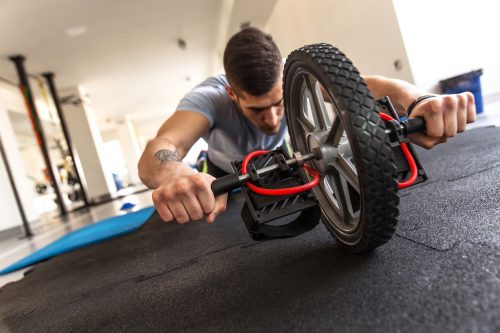Swimming can be one of the toughest types of workouts. It uses your entire body, forcing your heart and lungs to work hard. But unlike other forms of exercise, you might not think of it as a sweaty workout. But can it dehydrate you? We've researched this question and have come up with the answer.
Swimming can dehydrate you. In fact, it can be more dangerous than other activities since you can't see how much water you're losing via sweat since it's immediately mixed with the water. Thus, it's important to drink plenty of water or sports drinks before, during, and after a swimming workout.
Dehydration can be a serious danger, so we want to make sure to keep you safe while swimming. Please keep reading for an explanation of dehydration, how it occurs while you're swimming, and how to avoid it. Let's dive in!
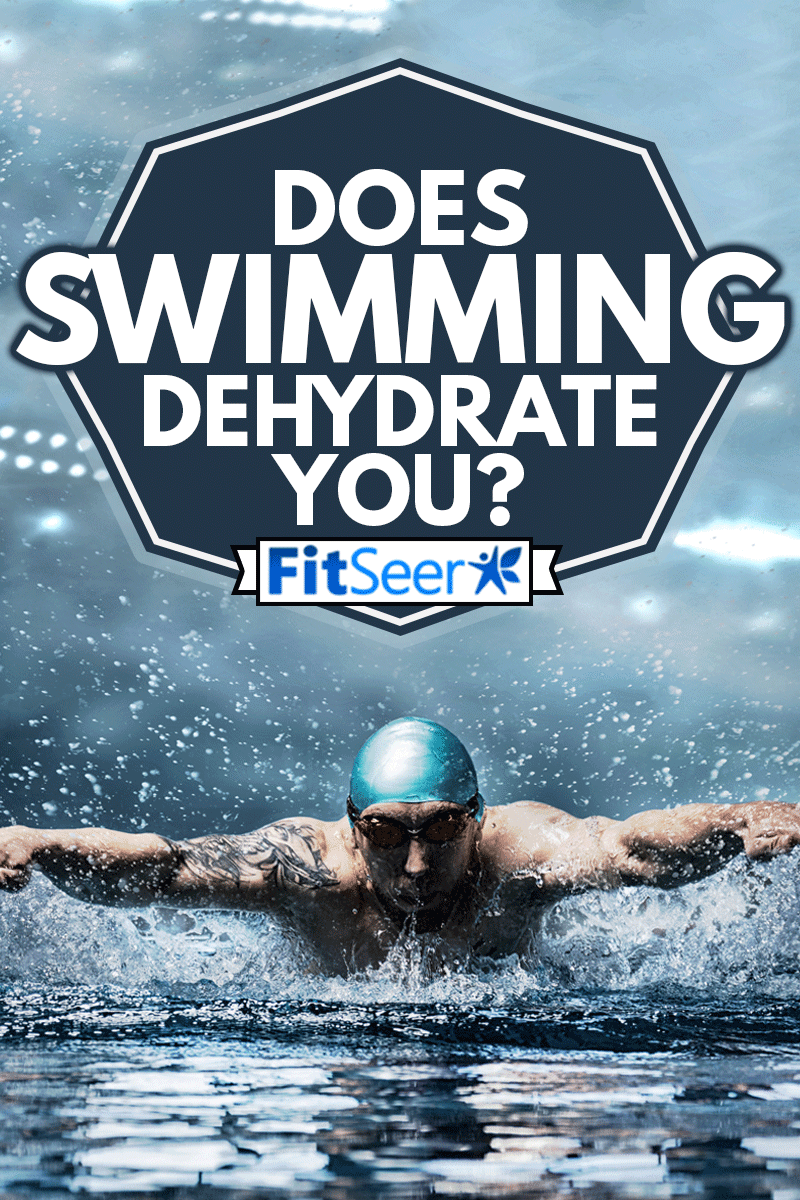
What Is Dehydration?
Before we get into the specifics of swimming, it will be helpful to define dehydration. Essentially, dehydration is a condition that happens when you lose more fluid than your body takes in. Over time, if your body has too little water, it won't be able to function like normal.
Some of the symptoms of dehydration include:
- Extreme thirst
- Fatigue, dizziness, and confusion
- Infrequent urination
- Dark urine
- Headache, nausea, and vomiting
For swimmers, dehydration can restrict muscle growth and recovery, energy, and joint lubrication. So while dehydration is a big deal for the average person, it's even more important for swimmers and other athletes.
Dehydration usually happens either when someone is sick with vomiting or diarrhea, or when they exercise in warm weather and lose fluids through sweat. The best way to beat exercise-induced dehydration is to take in plenty of healthy fluids such as water or sports drinks.
Dehydration In Swimming
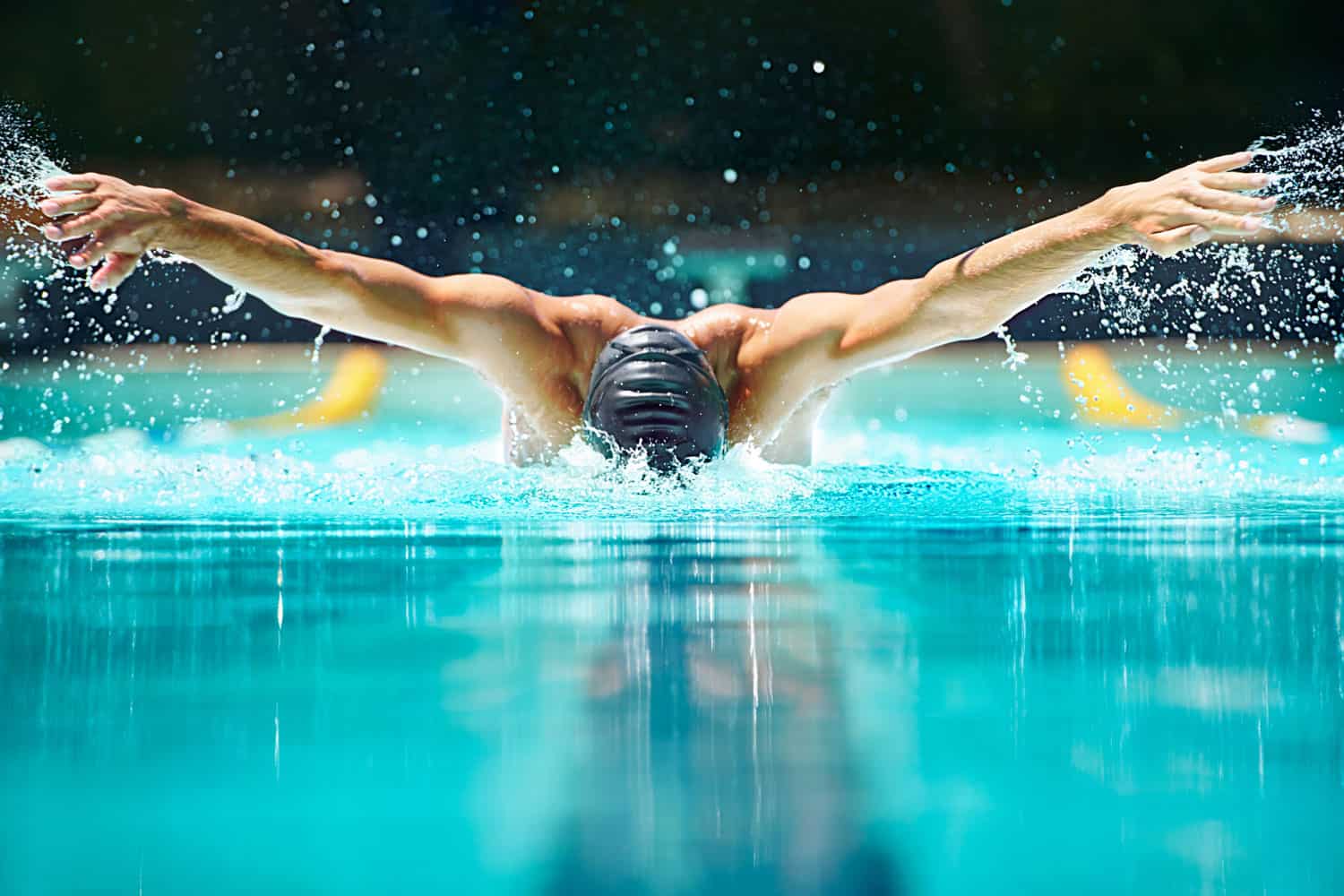
The human body uses perspiration to cool itself up and regulate its internal temperature. As the sweat dries, it cools the temperature down. Without sweat, our bodies would overheat easily. While exercising, your body heats up from the activity and uses sweat to cool itself down.
This is also true when you're doing a swimming workout. When your body gets warm enough, it will begin to cool itself with sweat, even if you're in the water. This is potentially dangerous; if you use how much sweat you're losing as an indicator of your need to replace the fluid, you'll miss that signal while you're in the water since you won't be able to tell.
How To Avoid Dehydration While Swimming
The general rule of thumb is to let your body's thirst tell you when to drink. When you feel thirsty, drink water instead of soda, coffee, or other non-quenching liquids. But when you're planning a tough workout, you'll need to prepare by drinking plenty of water beforehand. Experts recommend drinking at least sixteen ounces of water two hours before a swimming workout.
Even if you've prepared for your swimming workout by drinking plenty of water, you'll want to have a water bottle or sports drink handy while you're swimming. Put it on the pool deck at the end of your lane and drink in between laps. This will help replenish what you're losing during the workout. The best recommendation is to drink about eight ounces of water every twenty minutes while working out.
Finally, after your workout, make sure to drink plenty of hydrating fluids. While water is a great hydrator, consider adding sports drinks to your post-swimming recovery. Beverages such as Gatorade, Powerade, Body Armour, and others hydrate you while also replacing some of the nutrients you lost while swimming.
Is Gatorade Good For Swimmers?
Gatorade is the most popular brand of sports drink. It contains electrolytes, a type of mineral that helps your nerves, brain, and body communicate with each other. Examples of electrolytes are potassium, sodium, calcium, and phosphate. They're essential to making sure your body functions correctly.
When you sweat, your body loses these electrolytes. While the human body produces these things naturally, it sometimes needs help replacing them after losing a lot of them quickly. That's what Gatorade does, and is why you should consider drinking it after a hard workout.
Additionally, Gatorade contains carbohydrates and sugar that give you energy. Your body can quickly and easily turn these things into energy that it will burn off while exercising. If you aren't exercising, however, these sugars and carbs can be unhealthy. For general hydration, stick to water.
How Much Water Should Swimmers Drink A Day?
The general rule of thumb for the amount of water you should drink is to divide your body weight by two, then drink that many ounces of water each day. So, if you weigh 200 pounds, you should drink approximately 100 ounces of water each day. Other experts say that men aged 19 to 30 should drink 125 ounces a day, and women in the same age group should drink at least 91 ounces.
Swimmers should follow these recommendations, plus the recommended 16 ounces two hours before a workout. You also should exclude the water and sports drink you drink during and after your swimming workout. This is the best way to make sure your body is properly hydrated.
Looking for some other low-impact forms of exercise? This article can help: Is Hiking a Low Impact Exercise?
Do You Absorb Water While Swimming?
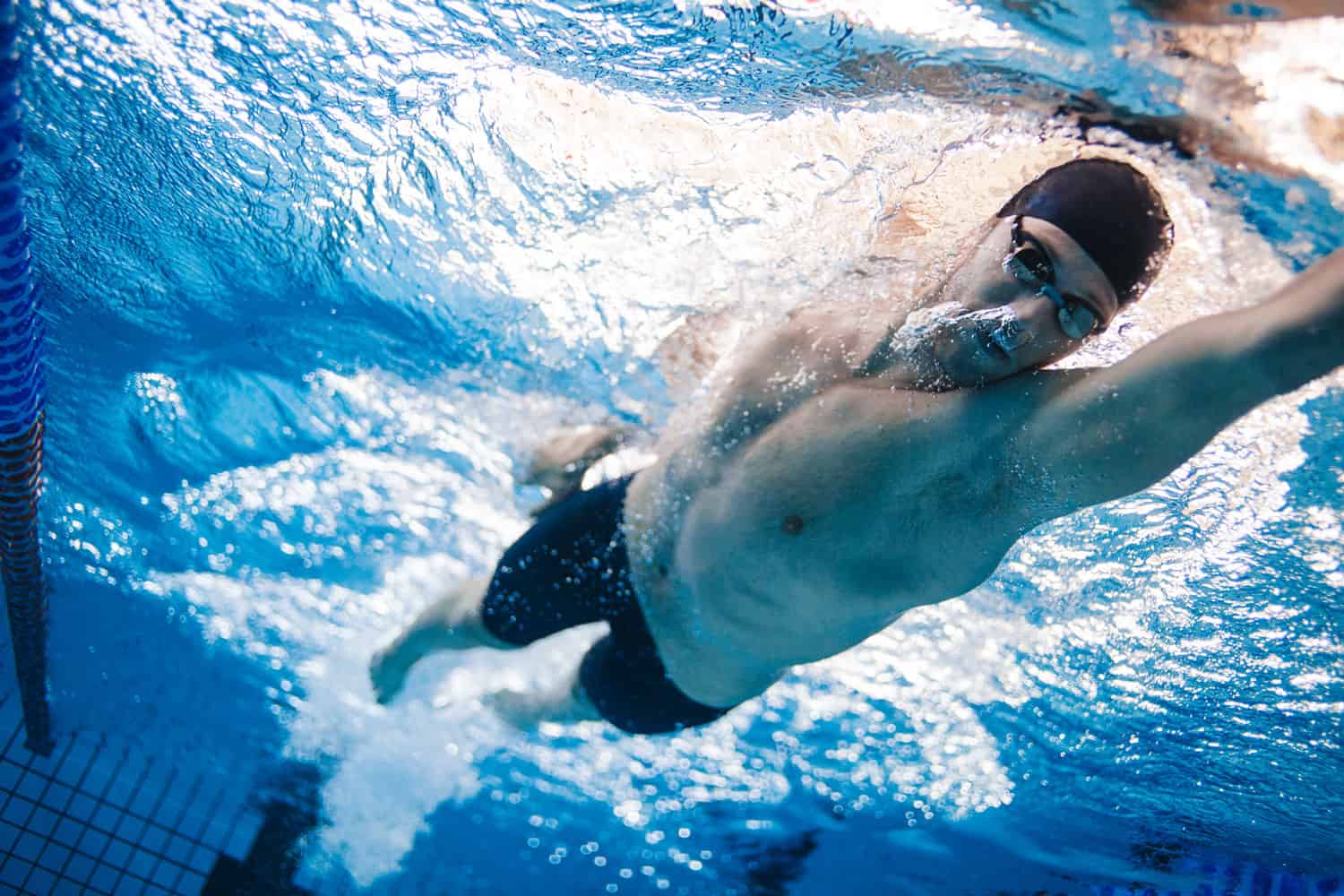
No, you do not absorb water while swimming. Human skin is not permeable past the cellular level, so the water can't get deep enough to keep you hydrated. Your skin is a stratified squamous epithelium, which is why you can't just sit in a tub of water when you're thirsty.
Want more information about swimming workouts? Here's an article about the length of swimming pools: How Long Is A Swimming Pool?
Why Do I Pee So Much After Swimming?
Have you ever felt yourself needing to urinate after a swimming workout, or even during the workout? If so, you're not alone! There are a couple of theories as to why this happens.
Mammalian Diving Reflex
All mammals are born with a reflex to help them survive underwater. Since this isn't our natural habitat, our bodies shut down some low-priority mechanisms to focus on what's important. In particular, this happens when you hold your breath in cold water as a way to conserve energy and oxygen.
This is our body's tactic to keep from drowning. Processes such as digestion and blood flow are cut off.
One of the first systems to go is our urination process. However, this doesn't mean your body doesn't need to urinate; it simply means it holds it in until the reflex isn't needed.
Gravity
Another theory says that gravity is what forces blood into your extremities. When you're in the water, gravity isn't as strong, so blood and other fluids remain in your torso. Your body reacts to this by assuming it's too much fluid and it needs to be released. The easiest way for your body to accomplish this is to urinate. Then, when you get out of the water, gravity takes back over and reminds your body of its need to pee.
Finish Line
Dehydration is a serious risk when swimming. Avoid it by making sure to drink plenty of water before your workout. Keep a water bottle or sports drink within reach while swimming, and make sure to replenish your fluids afterward. Being safe is an important part of any workout. Good luck!

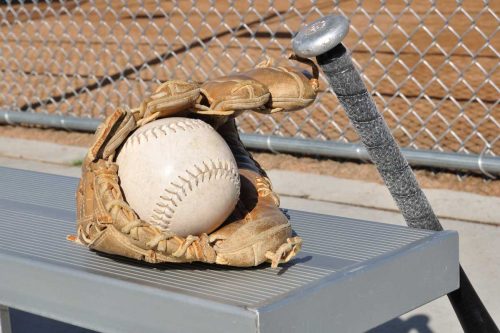


![Read more about the article Best Paint For Basketball Court Lines [Outdoor And Indoor]](https://fitseer.com/wp-content/uploads/2022/05/blue-background-of-newly-made-outdoor-basketball-court-in-park-500x333.jpg)

